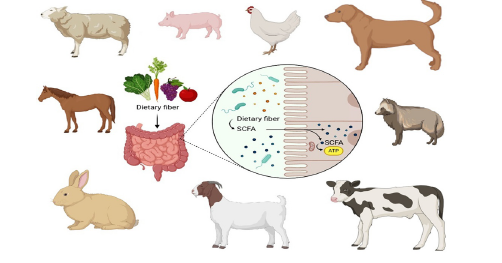Pharmacological Modulation of Gut Microbiota in Metabolic Syndrome
DOI:
https://doi.org/10.64062/JPGMB.Vol1.Issue4.15Keywords:
Gut Microbiota, Metabolic Syndrome, Metformin, Berberine, SCFAS, Dysbiosis, Bile Acid Modulators, Preclinical StudiesAbstract
Gut microbiota has been identified as a regulator of metabolic health, especially the metabolism syndrome (MetS), which is a multifactorial disease, including obesity, insulin resistance, dyslipidemia, and hypertension. Recent preclinical models involving rodents exposed to high-fat diets have demonstrated therapeutic benefits of pharmacological agents (e.g. metformin, berberine, and probiotics, prebiotics, and bile acid modulators, to mention a few) not only on direct molecular targets but also on the gut microbiome. These agents Walter U. [2016] Enhance the abundance of probiotic microbial taxa such as Akkermansia muciniphila and Bifidobacterium, Short chain fatty acid (SCFA) production, and improve gut barrier integrity as well as attenuate systemic inflammation and metabolic endotoxemia. The review is critical in assessing the methods, results, and actions taken by these interventions to improve host-microbiota interactions in the alleviation of MetS characteristics, such as raised insulin sensitivity, glucose, and lipid metabolism. It is also discussing some critical drawbacks of existing preclinical models, including species-level disparities in microbiota and the brevity of observation, which could be problematic to translate to clinical settings. It gives prominence on the implications on microbiota-modulating treatments, integrations of microbiome-modulating adjuncts, and how this can be studied further, such as long-term studies and individual approaches to treatment. On balance, it is possible to talk about pharmacological modulation of the microbiome of the gut as the new promising way of improving treatment outcomes of MetS and its sustainability.




